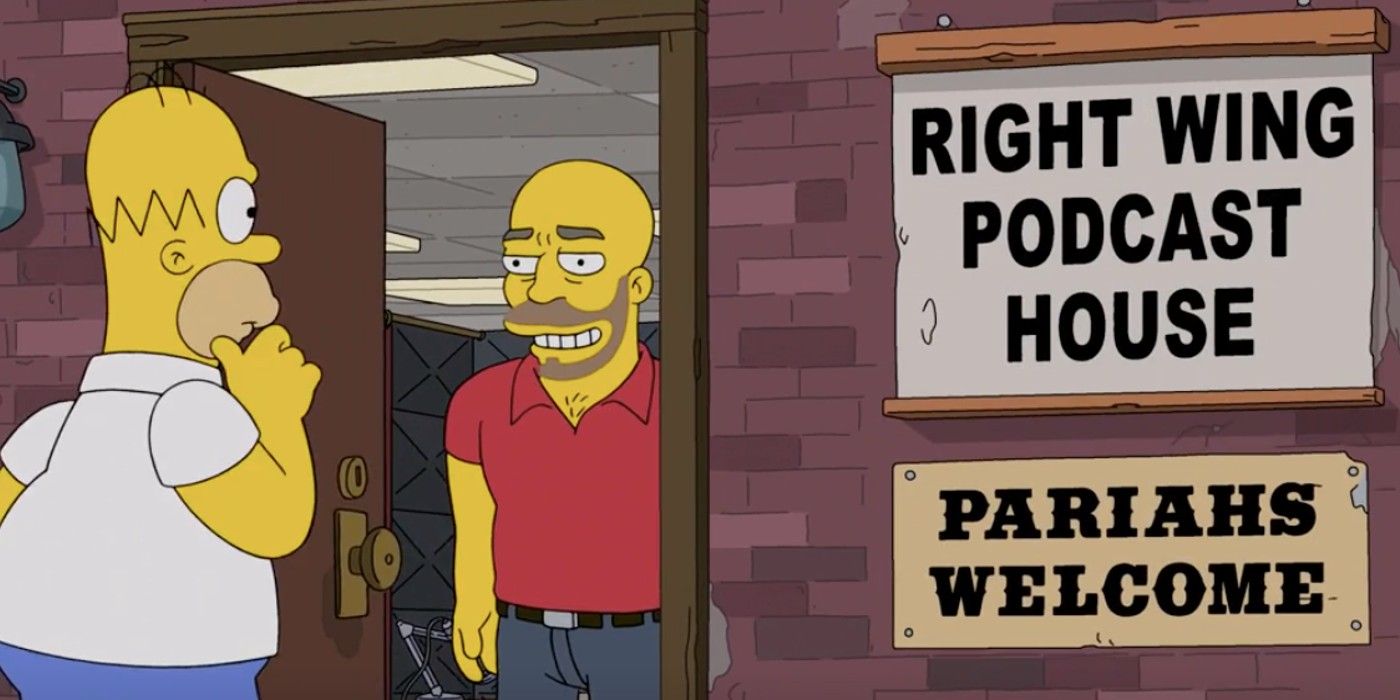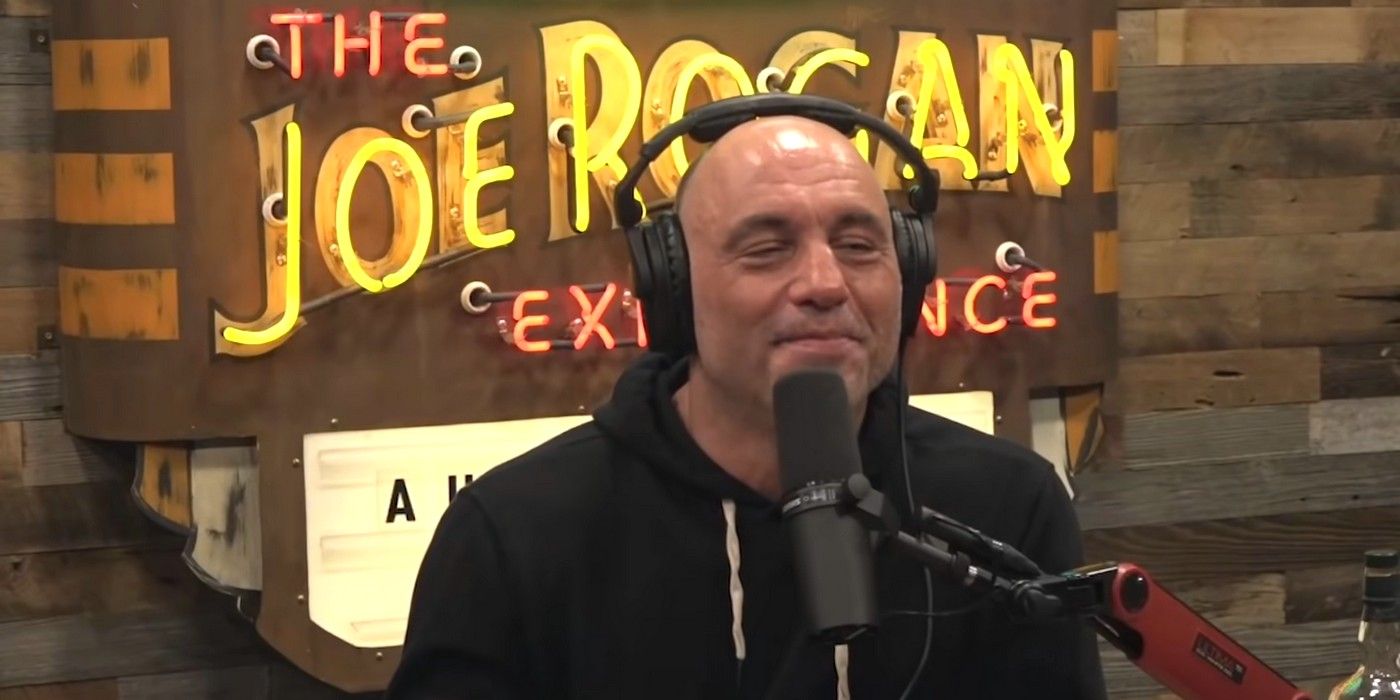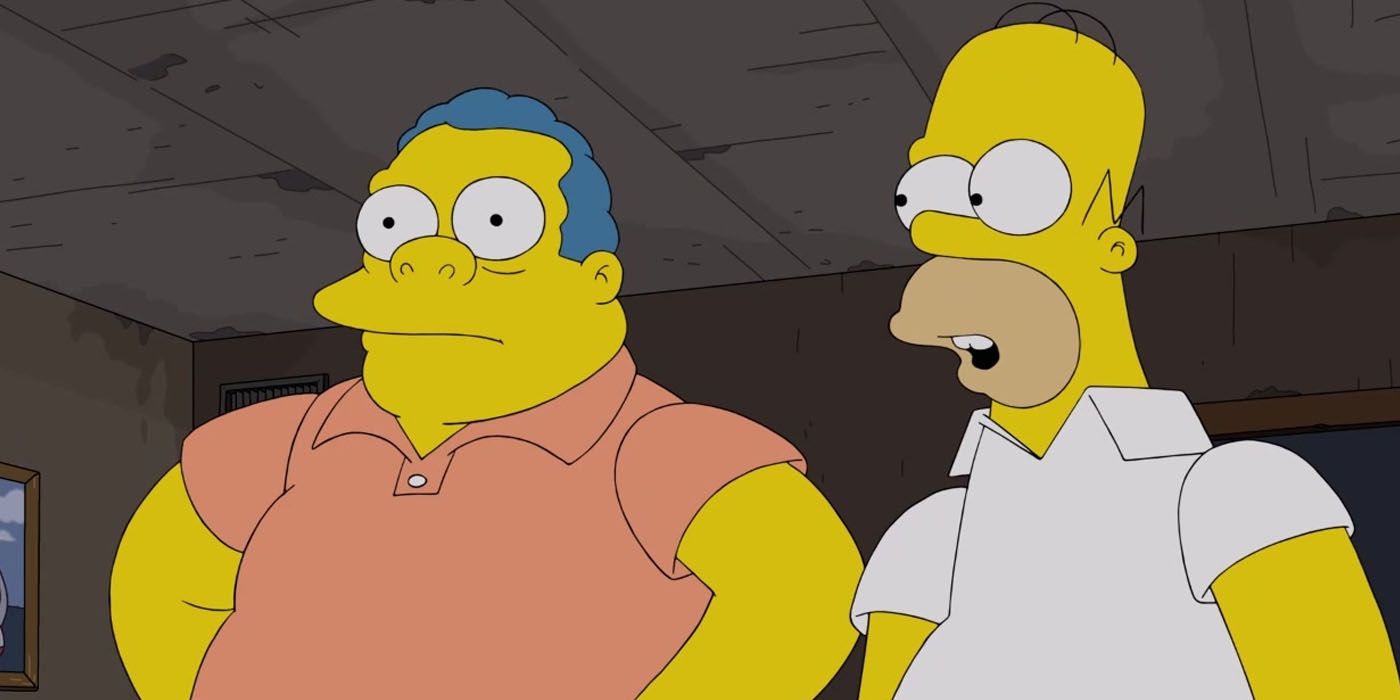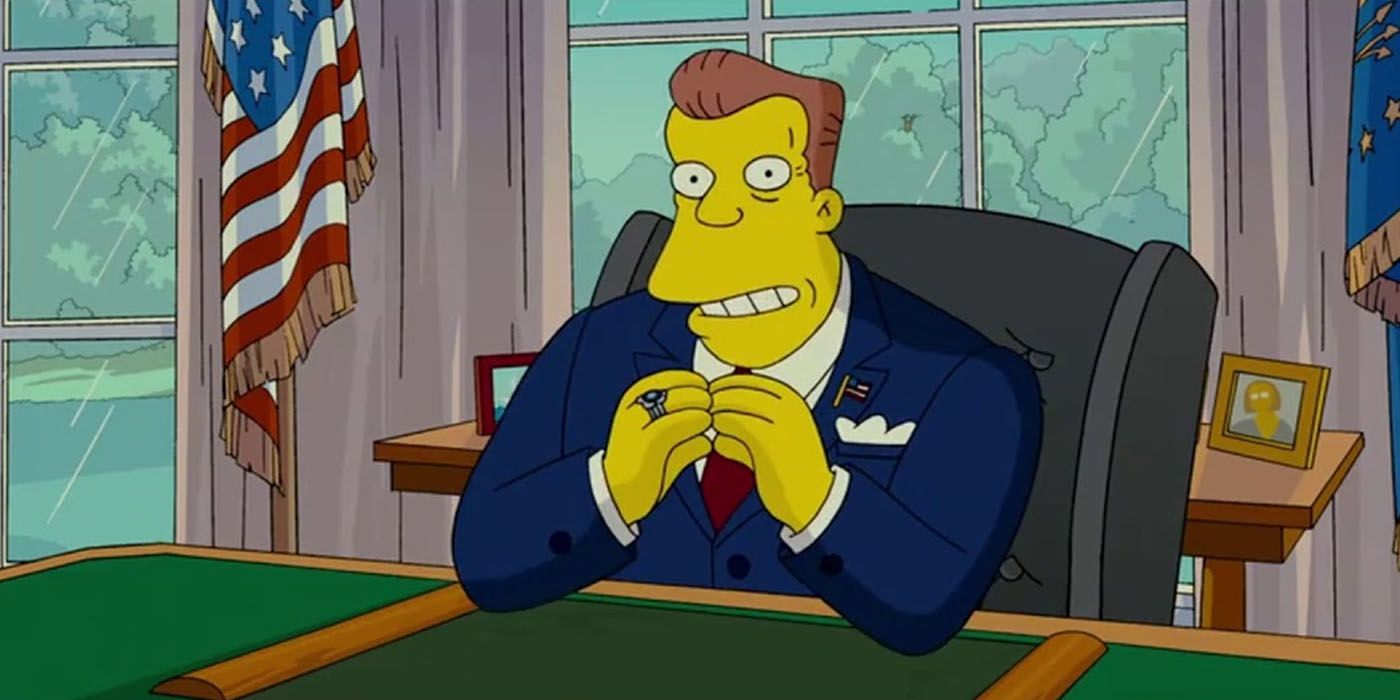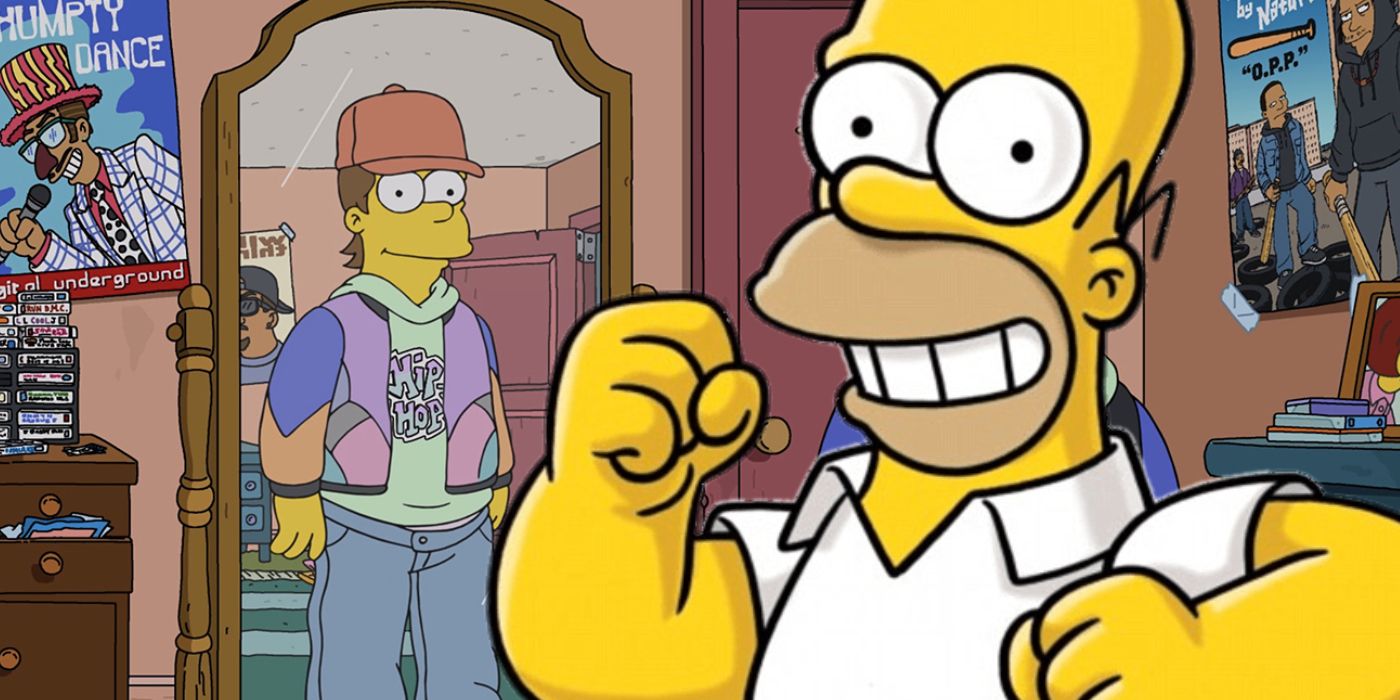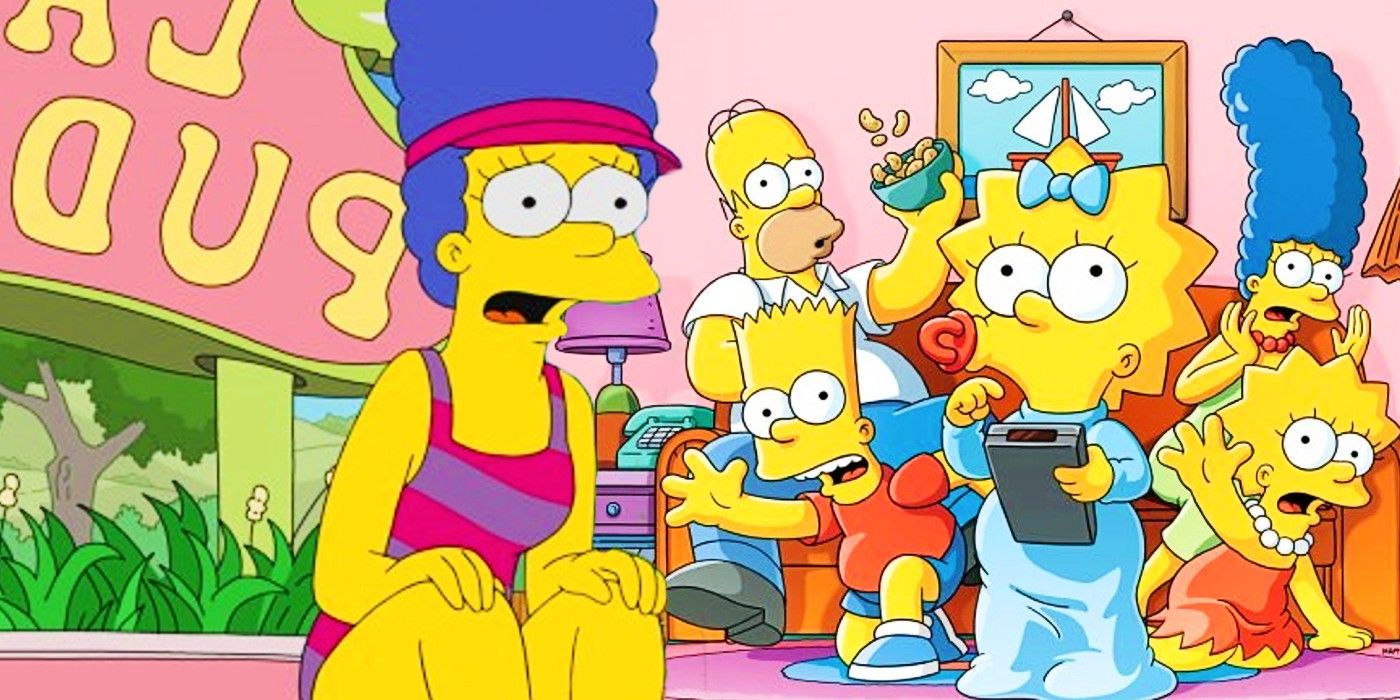Although The Simpsons season 33 attempted to comment on a hot button issue by centering an episode around cancel culture and seemingly spoofing controversial podcast host Joe Rogan, the resulting outing was a mess. Thanks to their lengthy production schedules, it is not easy for animated comedy shows to comment on topical issues. Unfortunately, this has never stopped them from trying.
At the heights of its cultural relevancy and critical popularity, The Simpsons was famously adept at timely political satire. One quickly-produced scene from the show saw the creators respond to George Bush’s claim that American families should be “more like The Waltons and less like The Simpsons” with Bart’s pithy rejoinder that the Simpsons, just like the Waltons, were still waiting for an end to the Depression. However, in recent years, South Park’s surprisingly deft satire has outpaced The Simpsons, as proven by a confused, messy season 33 episode.
In “You Won't Believe What This Episode is About - Act Three Will Shock You!”” (season 33, episode 14), The Simpsons attempted to parody the phenomenon of “cancel culture” while also caricaturing podcast host Joe Rogan. However, the resulting episode’s message was muddled and contradictory, while any attempted satirical slam on Rogan was defanged by the plot of the outing itself. Far from taking Rogan down a notch or offering any meaningful commentary on cancel culture, The Simpsons season 33 episode proved a profound failure with an indecipherable message and self-defeating execution.
How The Simpsons Parodied Joe Rogan
Where earlier Simpsons season 33 episodes took inspiration from indie horror movies, FX shows, and other unexpected sources, episode 14's plot was set up to be a simpler, classic sitcom story about escalating misunderstandings resulting in catastrophe. When Homer accidentally left Santa’s Little Helper in a hot car (through no fault of his own), his antics were caught on camera and he was publicly shamed. An embarrassed Homer attempted to apologize which led to another mishap as he accidentally knocked Reverend Lovejoy out a window, leading Homer to lose his job and face widespread social isolation from former friends, co-workers, and even his family. This eventually led to Homer encountering an obvious parody of Joe Rogan in a spoof that ended up backfiring.
The Simpsons Joe Rogan Parody Backfired
In a bizarrely misguided joke, The Simpsons depicted Rogan as the only one willing to welcome Homer into his home after he was publicly shamed. Rogan never referred to him by name, but the character who welcomes Homer into a building labeled “Right-Wing Podcast House” is intended to resemble the former UFC commentator. However, this gag falls flat for obvious reasons. The plot had, by this point, already shown that Homer was made a pariah for no good reason, and his public shaming came about because of a harmless misunderstanding. As such, the episode implies that this nameless Right-Wing Podcast host’s guests are presumably equally well-meaning, harmless figures like Homer. If the show wanted to take issue with Rogan, his likeness could have been included in the closing scene’s slew of people Homer calls “terrible,” instead of a tasteless aside about “a lot of Russian generals”—further proof that South Park’s Cold War satire was less misguided and tacky than that of The Simpsons.
Why The Simpsons Didn't Mention Joe Rogan By Name?!
The issue with The Simpsons not naming Rogan is an obvious one. If the show wanted to criticize a famous figure with as large an audience as Rogan, the satirical point would be sharper if they named the commentator himself rather than obliquely referencing him as a generic “Right-Wing Podcaster.” Given his huge platform and fame, naming the host would have been more effective, particularly when it is easy for Rogan to simply reject the label “right-wing” as he has done before, despite featuring right-wing speakers on his show. Instead, like The Conners spoofing former guest star Aaron Rodgers, The Simpsons attempted to both criticize Rogan and avoid criticism themselves by never directly naming the public figure.
While Rogan’s Instagram post of a political compass whose right quadrants are labeled “strong men” and “good times” is evidence of his right-wing leanings, his endorsement of left-wing presidential candidate Bernie Sanders in 2020 complicates this reading. Broadly, Rogan’s public persona is more nuanced than a “Right-Wing Podcast” host, and the choice to have him welcome Homer with open arms proves The Simpsons isn’t clear what the show is trying to say about cancel culture. The “Right-Wing Podcast House” has a sign outside saying “Pariahs Welcome” but, since Homer did nothing to deserve his public shaming, that should theoretically be a good thing.
The Simpsons Cancel Culture Message Made No Sense
Taken in tandem with the rest of the plot, The Simpsons episode's attempted celebrity parody serves to prove how deeply confused its cancel culture message is. Outside of Homer, many of the characters who are publicly shamed (such as Helen Lovejoy and Kirk Van Houten) have behaved poorly, and thus viewers are expected to understand the public’s disdain for them. Their cynical attempts to reclaim their reputations are seen as futile and self-serving, while the episode also takes aim at clickbait as a phenomenon without establishing any meaningful link between it and public shaming. The problem is, Homer didn’t do anything that necessitated an apology and is right to feel unfairly vilified, so pairing him in with characters that The Simpsons depicts as villains and unrepentant jerks made the episode pointless. This is never more evident than in the misjudged ending scene.
The Simpsons Undermined Its One Important Message
Homer's apology is intended to be key to the episode's story but, in classic deus ex machina fashion, it is never heard by the viewer as the episode’s narrator explains that the apology perfectly satisfied everyone, fixed everything, and solved all of the plot’s problems. For one thing, this was a cringe-worthy affirmation that The Simpsons tends to write Lisa (who authored the apology) as a precocious, morally upright wunderkind rather than a lovably flawed character like the rest of the titular family. More pertinently, though, the ending also undermined the entire episode’s apparent point.
Since Homer never did anything wrong in the first place, it seems obvious that he has nothing to apologize for. However, The Simpsons season 33 episode saw him instead prostrate himself to Springfield’s unfriendly, unreasonable citizens and this is portrayed as a good decision or a necessary step to his redemption when, again, he did nothing wrong in the first place. Much like its earlier joke depicted “Right-Wing Podcasts” as the lone safe refuge for decent family men who have been unfairly maligned by a cruel, callous public, the ending of The Simpsons season 33 outing portrayed giving up to public pressure as a moral good and left episode's message meaningless.

